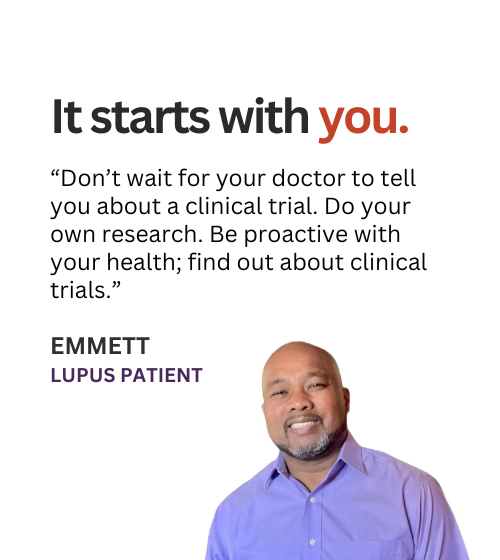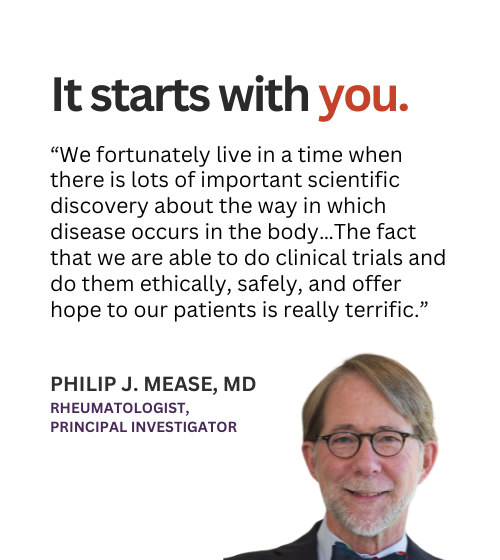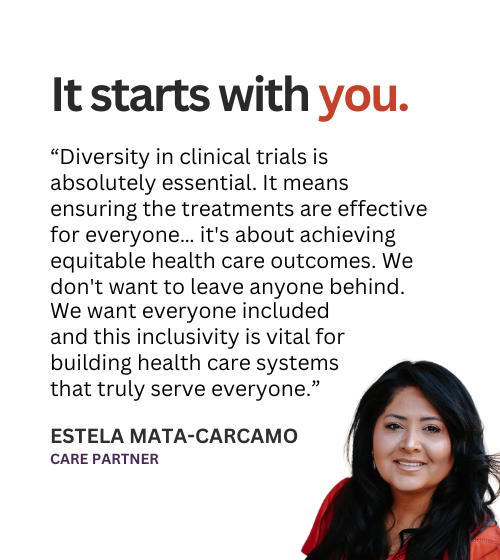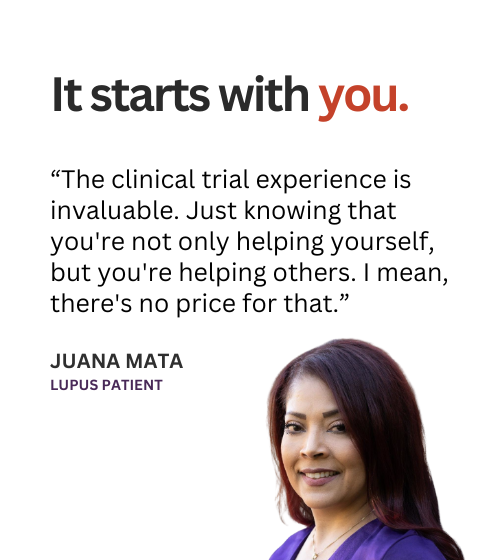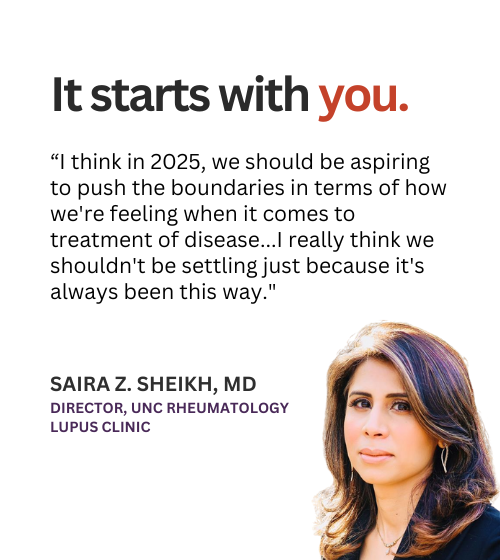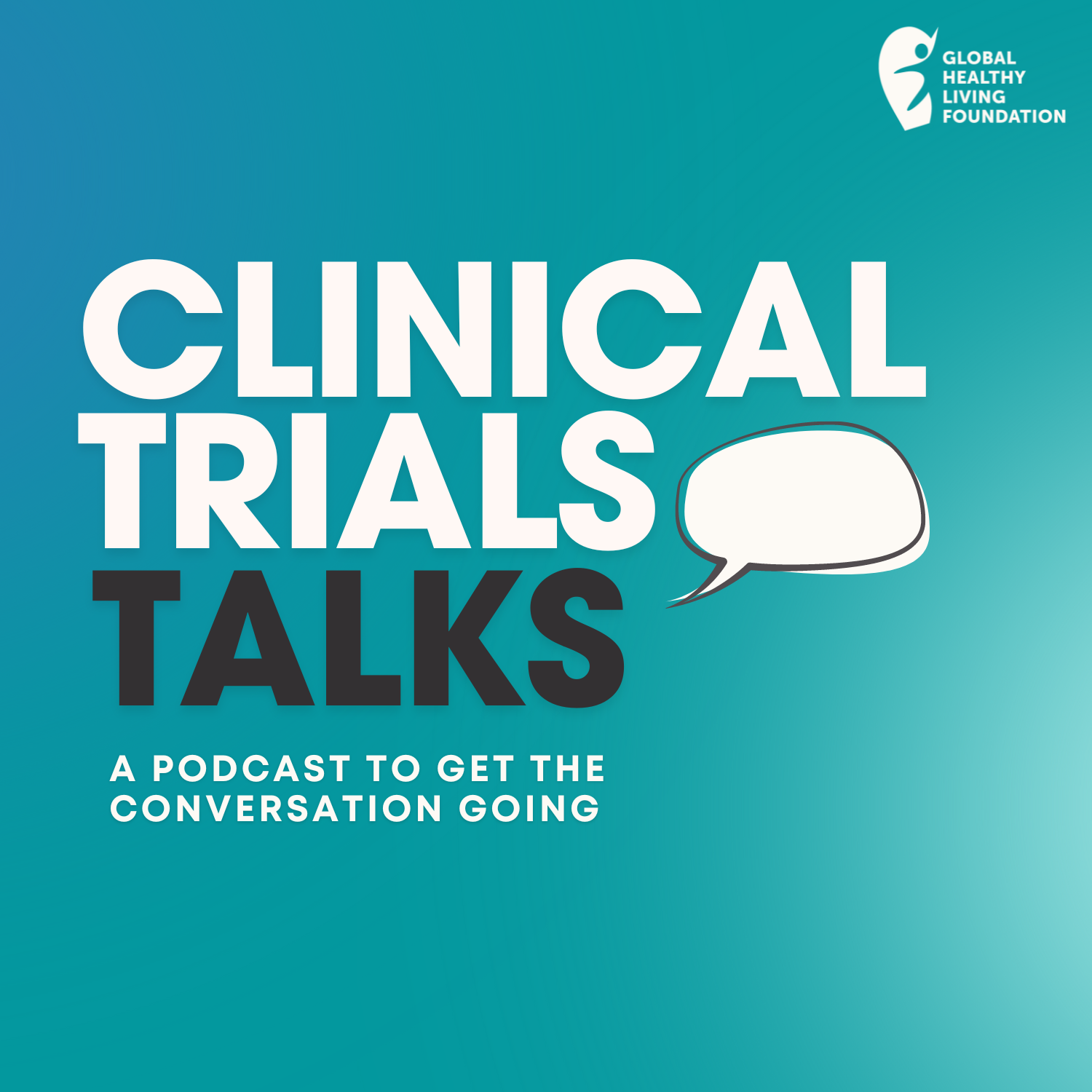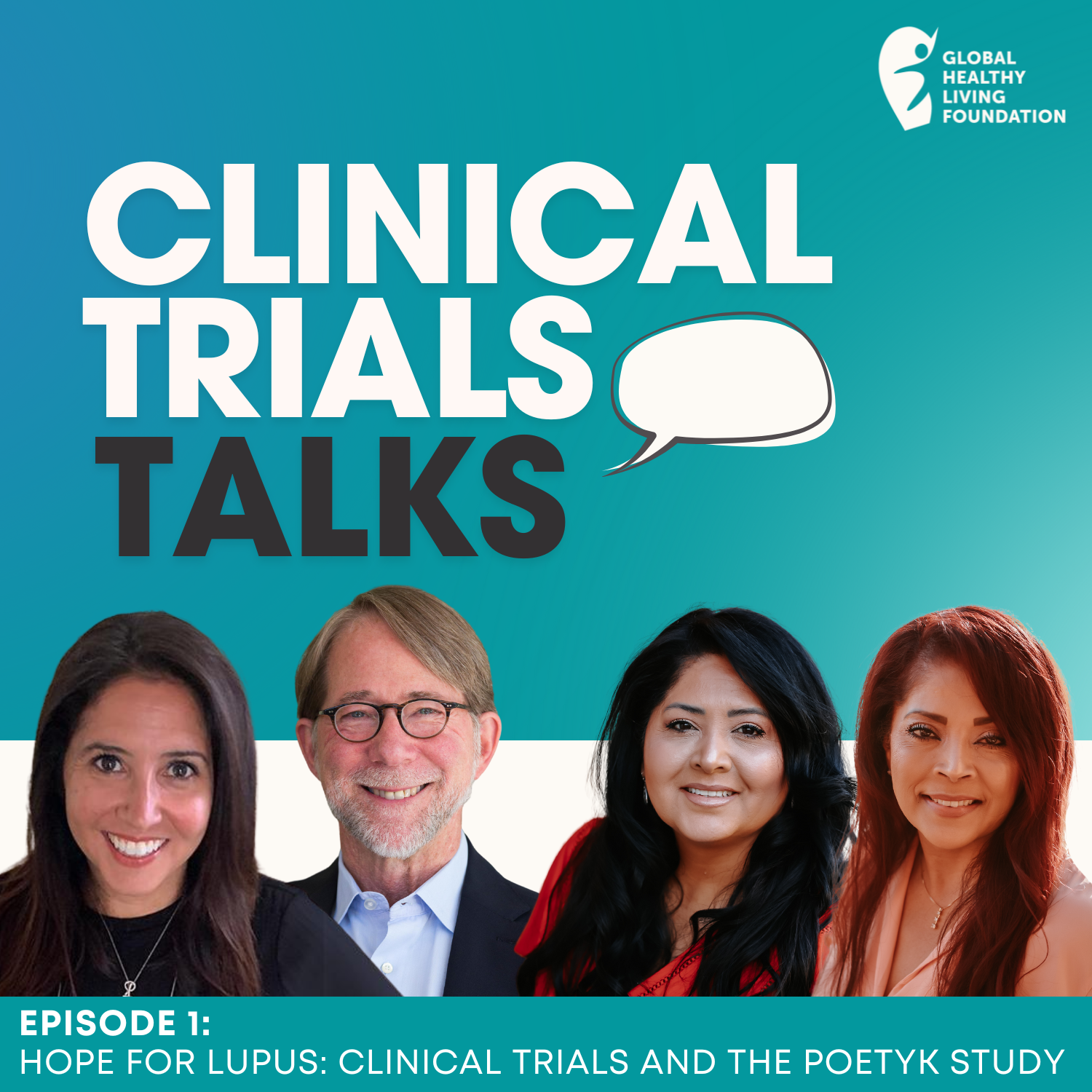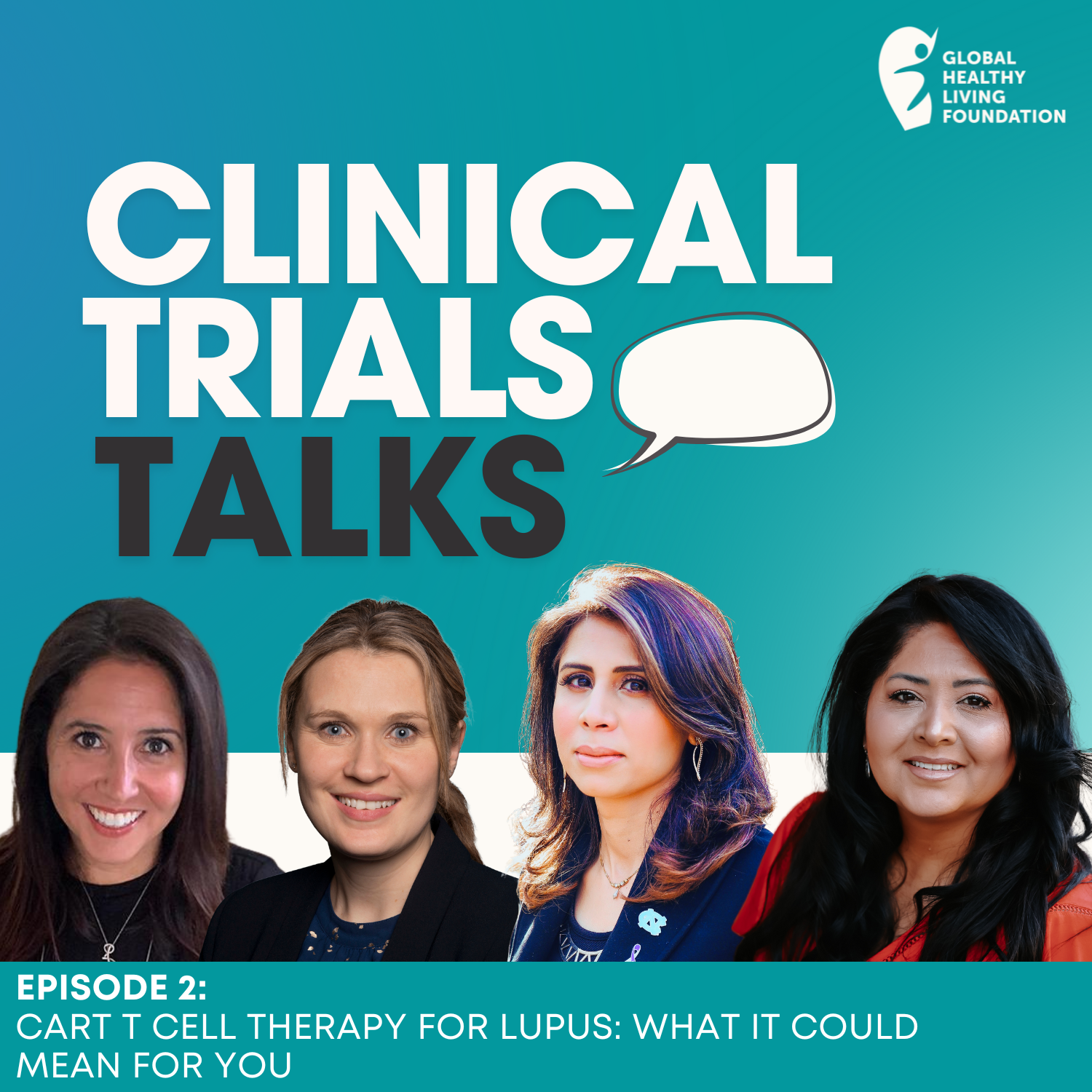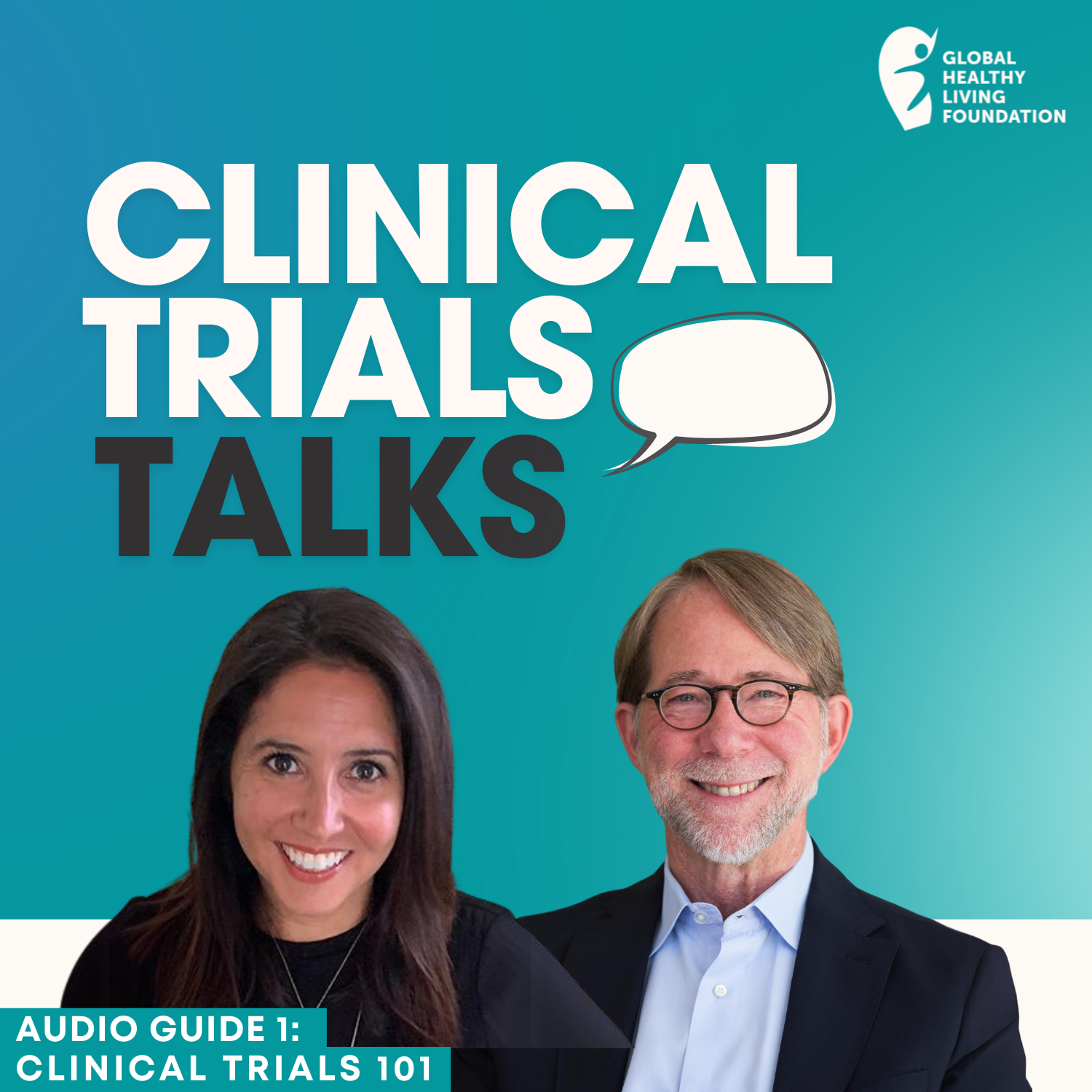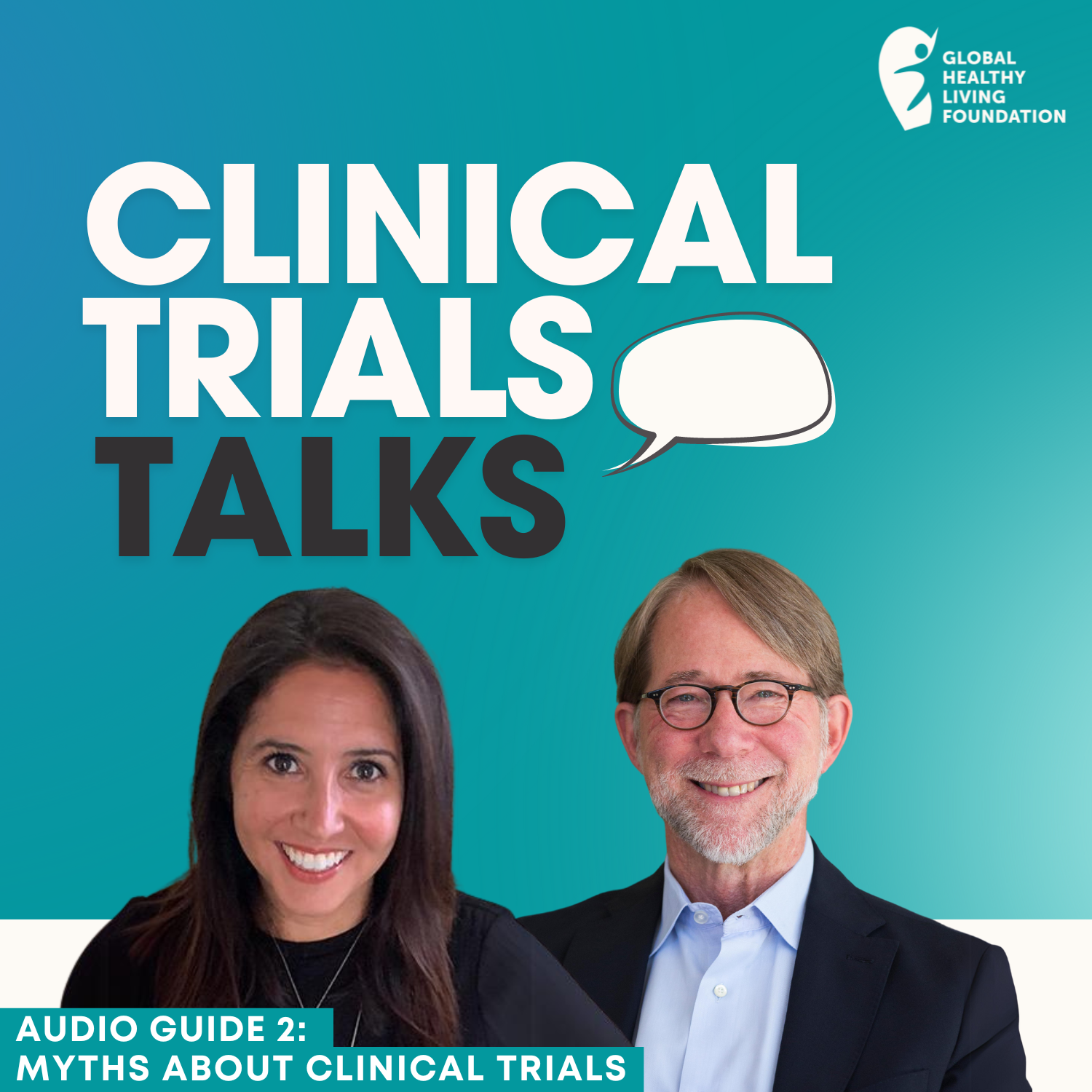
What clinical trials are happening now?
Below, you’ll find clinical trials that are actively seeking eligible participants. These trials are designed to evaluate potential new treatments for lupus, and by participating, you may be taking a step closer toward feeling better or helping others like you.
Subscribe for more clinical trial resources
For a complete list of current lupus clinical trials, click here.
How can I get involved?
Considering a lupus clinical trial? Whether you’re exploring your options or ready to take the next step, our resources are designed to help you feel informed and confident in your decision.
Here are a few ways to get started:
Subscribe for more clinical trial resources
What is it like to be a part of a clinical trial?
We’ve crafted resources for lupus patients, by lupus patients and the providers who care for them, to guide you through the clinical trial experience. These patient-driven podcasts, articles, and tips offer real-life insights into what it’s like to participate in a clinical trial — from handling day-to-day challenges to navigating the emotional journey. Whether you’re thinking about joining a trial or are already involved in one, these resources are here to give you the support and encouragement you need from those who truly understand.
Are clinical trials safe?
Safety is the first priority in clinical trials.
Trials are designed, conducted, and monitored according to local regulatory requirements, ethical principles, and international standards. Clinical trials are completely voluntary, and participants can leave the trial at any time, for any reason, without penalty or fees. However, if withdrawing from a trial, the participant should inform the research team.
Before participating in a clinical trial, you will need to sign an informed consent form (ICF), which outlines the purpose, procedures, risks, and benefits of the study. You will be given ample time to review the form, ask the study staff questions, and even take it home to consider or discuss with your loved ones.
Discover what clinical trials are and how they play a role in lupus research. Dr. Philip Mease explains the purpose of clinical trials, their importance in understanding lupus, and their contribution to potential treatments.
Participation in clinical trials involves understanding potential risks and benefits. Dr. Philip Mease explains how side effects are monitored, the importance of informed consent, and the role of study teams in ensuring your safety.
Clinical trials progress through distinct phases to ensure study medications are safe and effective. Dr. Philip Mease provides an overview of each phase, from pre-clinical testing in laboratories to post-approval studies in Phase IV.
Clinical trials have specific eligibility requirements to ensure safety and effectiveness. In this video, Dr. Philip Mease guides you through the eligibility criteria, screening processes, and the steps taken to determine if a trial might be right for you.
What are clinical trials?
Clinical trials, also known as clinical studies, are research studies that include human participants. These trials investigate how a study drug might act in the body and affect a disease. It is important that these studies make sure to evaluate the safety of the study drugs so you can take it.
Clinical trials are crucial for lupus patients as they help researchers understand the disease better and aim to develop potential treatments. Participation in clinical trials can lead to advancements in medical knowledge and new therapies for lupus.
Clinical trials are designed to help you possibly get closer to your goal of remission and be considered as an option in your toolkit. Enrolling in a clinical trial is a decision that you should make in consultation with your doctor and your loved ones.
What are the phases of clinical trials?
Clinical studies are typically classified into the following phases:
- Pre-clinical: When study medications are tested in the laboratory and on animals
- Phase I: Researchers test study medication for the first time in humans by giving it to a small number (20-80). And these can be either patients with a disease or healthy volunteers to evaluate how the drug works and identify potential side effects.
- Phase II: The study drug is given to a larger number of people (100-300) with a particular disease or condition to further evaluate safety, side effects, and the drug’s efficacy.
- Phase III: Several hundred to several thousand people with the disease or condition participate. The study drug undergoes additional testing to continue to assess safety, side effects, and efficacy or how well the medication works optimal dosage, and comparison to standard treatments.
- Phase IV: Conducted after the study medication is approved and available by prescription, researchers aim to understand the best way to use the study medication as a potential treatment and identify any other risks or benefits.
What questions should I ask before participating?
It’s important to get informed and get as much information as possible before participating in a clinical trial. Key questions to ask:
- Are you a good candidate for the study?
- Do you qualify for the study?
- How long will the study last?
- Does it include any study treatment?
- How long are the visits?
- How many times do you have to go in to see your provider?
- Will you know whether the study medication or study treatment is being given to you?
- What questions should you ask regarding the consent forms?
- What is required of you as a participant in the study?
- Will you be compensated for participating in the study?
- Will you be reimbursed for any travel expenses or other costs related to the study?
What are the potential benefits of joining a clinical trial?
The benefits of participating in a clinical trial are numerous. These can include access to study medication that is not yet approved for your disease. In addition, clinical trials offer close monitoring and care from health care professionals, and by participating, you are contributing to medical research that could potentially help your peers in the future.
However, it’s important to understand that there may not be any direct benefit to you from taking part in a clinical trial.
What are the possible risks?
Keep in mind that each person’s experience is unique. Some people may experience risks, while others may not. Just like any other medical decision you make, it’s crucial to have a clear understanding of the risks when contemplating a clinical trial. Here are some important ones to discuss with your doctor.
- New treatments may have unexpected side effects and risks that are worse than that of the standard option of care.
- Costs that a participant may have as a result of the study might not be covered by health insurance and managed care providers.
- Even if you are seeing positive effects from the intervention, the intervention may not be approved by regulatory agencies.
- Participants in randomized trials are assigned whether or not they will receive an intervention that is being tested. They cannot choose. “Randomized” means that a person is randomly assigned to an intervention group to receive treatment or to a control group to receive a “placebo” or usual care.
- Additional doctor visits may be required.
Are clinical trials open to everyone?
Participation in clinical trials is open to people of various ages and backgrounds. However, each research study has specific eligibility requirements based on factors, such as age, gender, type, and stage of disease, previous or current treatments, and other medical conditions. Your eligibility will ultimately be determined by the study doctor.
Every potential clinical trial participant must also go through a screening process to ensure they meet the eligibility requirements. The screening process may include more than one visit.
- Pre-screening assessment: This initial screening may take place over a phone call or you may fill out a questionnaire online. You’ll be asked general information such as your age, race, preferred contact method, and to verify your contact details. You’ll also discuss your current diagnosis as well as any comorbidities that you’re living with that could exclude you from the study. You may also be asked about the medications you are taking. When filling out forms or answering questions, it’s important to be honest. Don’t answer based on what you think might make you eligible. The information you share is designed to help determine if the trial would benefit you.
- Screening appointment: If you pass the pre-screening, you’ll be invited for an in-person evaluation. During this visit, the study team will explain the trial, ask you to review and sign the informed consent form, and discuss all inclusion and exclusion criteria. You’ll also undergo a physical examination, which may include height, weight, temperature, blood pressure, and blood and urine tests. Additional tests may be conducted based on your medical history. The screening period will vary in the number of visits based on the study.
Why is diversity in clinical trials important?
Diversity in clinical trials is essential to developing better treatments for lupus. These trials help researchers understand what works, what doesn’t, and how to make care safer and more effective. However, if people from all backgrounds aren’t included, the results might not reflect the needs of those most affected by lupus. Lupus is a complex autoimmune disease that impacts people differently based on factors like gender, race, ethnicity, and even where they live.
New treatments are urgently needed to improve the lives of those living with lupus. Without diverse participation, researchers could miss how treatments work — or don’t work — for everyone.


This project was made possible with support from Bristol Myers Squibb.

The Global Healthy Living Foundation is a U.S. based, 501(c)(3) nonprofit, international organization whose mission is to improve the quality of life for people with chronic illnesses by advocating for improved access to health care through education, patient-centered clinical research, support, advocacy, and economic and policy research. GHLF is also a staunch advocate for vaccines. The Global Healthy Living Foundation is the parent organization of CreakyJoints®, the international, digital community for millions of people living with arthritis and their supporters worldwide who seek education, support, activism, and patient-centered research in English, Spanish, and French. In addition to arthritis and autoimmune disorders, GHLF supports dermatology, gastroenterology, neurology, cardiology, oncology, infectious disease, rare disease, and pulmonary patients through a host of different programs and activities which draw more than 700,000 patients a month to GHLF websites and create more than 10 million impressions a month on seven social media platforms. GHLF totals more than 3.7 million views with its patient-centered audio-visual content, found on YouTube and totals more than 840,000 listens on podcast platforms. GHLF never asks the public for donations, receiving funding instead through governments, non-governmental organizations, foundations, industry, family foundations and co-founder Louis Tharp. Visit ghlf.org for more information.
Copyright © 1999 – 2025 CreakyJoints. All rights reserved.
Part of the Global Healthy Living Foundation.
The information and perspectives shared are based on individual patient and provider experiences and are intended for informational purposes only. Every person’s decision to enroll in a clinical trial and their experience during the trial can vary significantly. The content discussed should not be considered as medical advice and should not take the place of professional medical care. We strongly encourage you to consult your health care provider before making any decisions related to your health or participation in clinical trials. Your doctor can help you understand the potential risks and benefits, ensuring that any choices you make are appropriate for your specific medical situation..



